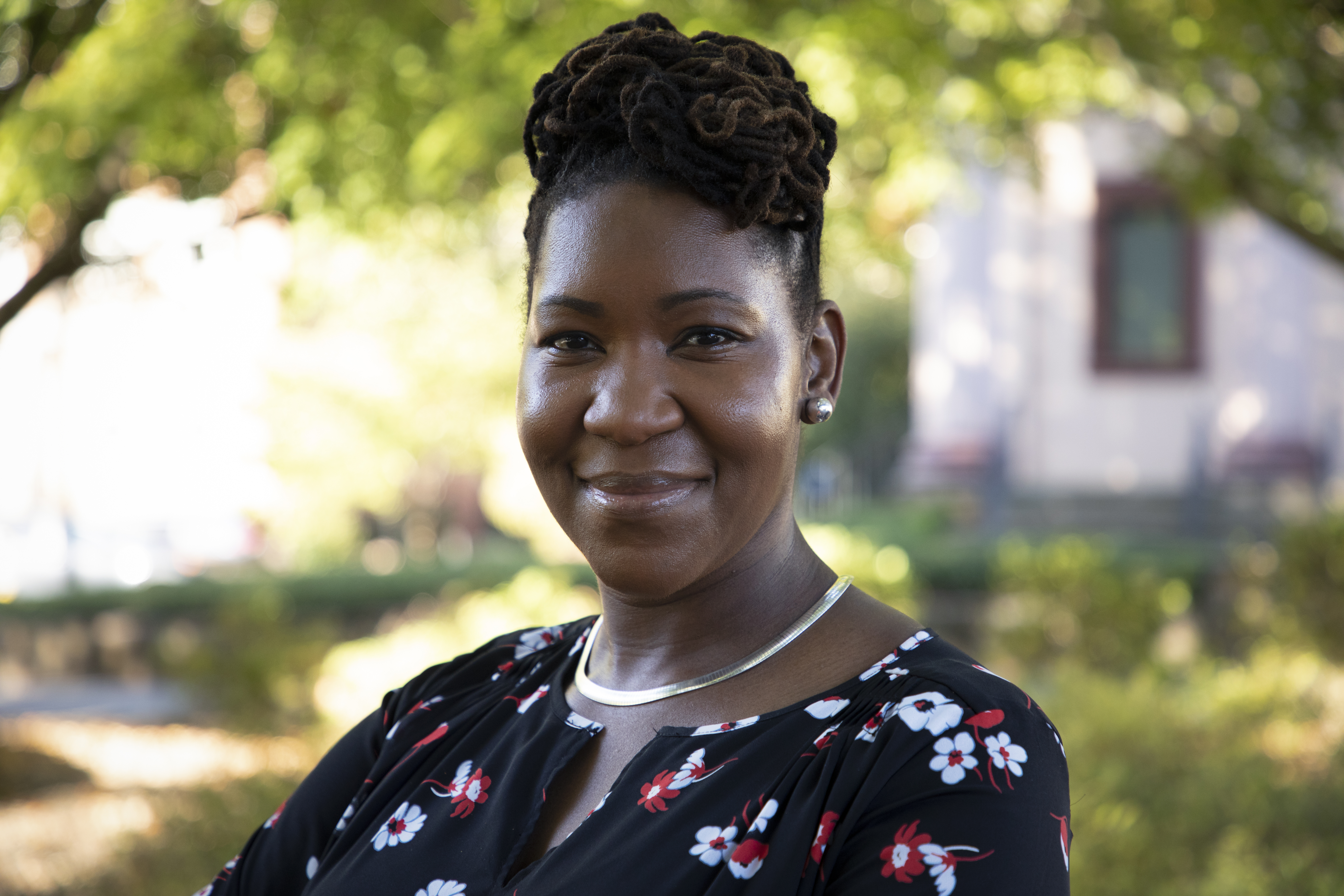Teshanee Williams Joins School of Government Faculty as Nonprofit Management Expert
The School of Government is excited to welcome Teshanee Williams into its faculty ranks as an assistant professor of public administration and government. Williams originally joined the School in 2019 as a Carolina Postdoctoral Program Faculty Diversity Fellow, researching strategies to manage effective, efficient, and equitable policy outcomes through the public sector and nonprofit partnerships. In her new role, Williams will continue to specialize in the field of nonprofit management and lead the School in researching and advising on effective management, leadership, and governance of nonprofit organizations in collaboration with local governments.
For Williams, the drive to work in public service—specifically in the field of nonprofits—was borne of a desire to help not just individuals but whole communities create lasting change. After the completion of her undergraduate degree in psychology, Williams contemplated pursuing a career in mental health but realized a broader lens would allow her to contend with the sweeping, structural issues she sought to address.
“There are problems that are bigger than one patient,” Williams said. “It was at that point that I realized that I wanted to focus on research that identifies solutions to systemic issues that affect individual people in their day to day lives.”
She turned to public administration as a career. She completed her master’s in the field in 2016 and a Ph.D. in 2019, both from North Carolina State University. She shortly thereafter joined the School as a fellow, researching nonprofit management and bridging the gap between theory and practice to make a tangible impact in communities across the state.
“Nonprofits engage in providing or organizing a myriad of human and social service needs,” Williams said. “They function to fill in the gaps to meet the needs of our communities. These organizations play a major role in doing ‘the work, for the people.’”
While building out her research in the field, Williams found the School to be an ideal host for her work to translate academia into action.
“I enjoy doing research that helps to inform and create impact. The School is unique in that approach to engaging in academic research,” Williams said. “I had the opportunity to receive mentorship and guidance that truly helped me to advance my research agenda.”
United under this mission to improve the lives of North Carolinians, Williams credited the camaraderie among the faculty and staff as instrumental in her desire to advance her research commitments and academic career at School.
“My time here gave me the opportunity to understand how the school really functions to meet its mission,” she said. “The level of support that I received played a huge part in my desire to join the faculty.”
Looking ahead to her professorship, Williams welcomes the opportunity to collaborate with colleagues who share her passion for leveraging scholarship to improve public well-being.
“I am mostly excited about working with a group of people that demonstrate the public service mindset in everything that they do,” she said. “As public administrators, we engage in the work that we do to improve our communities while also improving the field of public administration.”
In addition to advising on nonprofit and local government relations, Williams will instruct in the School’s top-ranked Master of Public Administration program—teaching courses on nonprofit management, research methods, and program evaluation—and complete research on nonprofit-local government relations and issues of social equity.
Williams has served as a research analyst for the North Carolina State Auditor’s Office and the Office of Partnership and Economic Development at North Carolina State University. Her research interests include the application of mixed-method approaches for inquiries related to strategic alliances between the public sector and nonprofits as well as public participation in decision-making processes. Her research fellowship at the School allowed her to examine effective policymaking through public sector and nonprofit partnerships. Since joining the School, Williams has co-authored two bulletins assessing community capacity to disaster response and COVID-19. Her peer-reviewed article on the role of social capital in organizations is forthcoming in the Community Development Journal.
The School is pleased to welcome Williams as a full faculty member and looks forward with optimism to seeing her public management expertise produce effective policy outcomes for the people of North Carolina.
Published August 5, 2021



